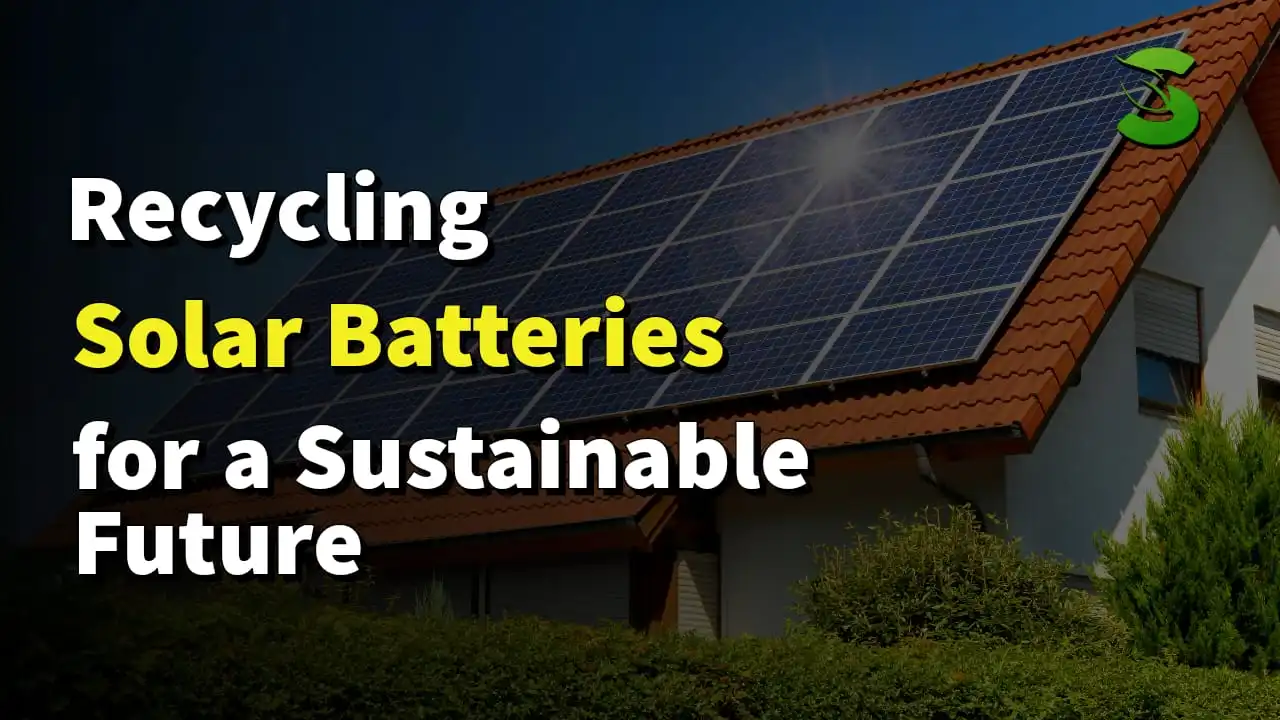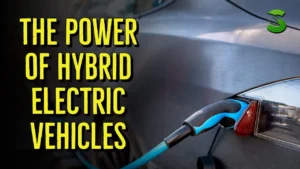In a world where environmental sustainability is at the forefront of our concerns, one of the most promising technologies that has emerged to address this issue is solar energy. Solar energy is clean, renewable, and abundant, making it a crucial component of the green energy revolution. As we harness the power of the sun to generate electricity, we are also faced with the challenge of managing the batteries used in solar energy systems. Recycling solar batteries is not only an environmental responsibility but a significant step towards creating a sustainable future. In this comprehensive guide, we will delve into the importance of recycling solar batteries, the process involved, and the numerous benefits it brings to our environment and energy landscape.
Why Recycle Solar Batteries?
1. Environmental Preservation
Solar batteries, also known as solar photovoltaic (PV) batteries, play a pivotal role in storing the energy harnessed from the sun. These batteries contain a variety of materials, including lead-acid, lithium-ion, and nickel-cadmium, which can be harmful to the environment if not managed properly. Recycling these batteries ensures that these hazardous materials are safely extracted and disposed of, preventing soil and water contamination. By doing so, we protect our ecosystems and the health of future generations.
2. Resource Conservation
Recycling solar batteries is an effective means of conserving valuable resources. Many of the materials used in these batteries, such as lithium and cobalt, are finite resources. As global demand for renewable energy solutions continues to rise, the responsible management of these resources becomes increasingly critical. Recycling solar batteries helps recover and reuse these materials, reducing the need for mining and its associated environmental impacts.
3. Energy Efficiency
Recovering materials from recycled solar batteries requires significantly less energy than mining and processing raw materials. This contributes to reduced carbon emissions and a smaller carbon footprint, aligning with the overall goal of reducing our environmental impact. By promoting energy efficiency in the recycling process, we make a substantial contribution to mitigating climate change.
The Solar Battery Recycling Process
1. Collection
The first step in recycling solar batteries is the collection of used batteries. These batteries can be obtained from residential solar systems, businesses, and solar farms. It’s crucial to ensure proper collection and storage to prevent leakage and environmental contamination.
2. Sorting and Preparation
Once collected, the batteries are sorted based on their type and chemistry. This categorization is essential as different battery chemistries require distinct recycling processes. After sorting, the batteries undergo preparation, including the removal of casings and plastics.
3. Breaking and Separation
In this stage, the batteries are broken down into smaller components. The valuable metals, like lithium, cobalt, and nickel, are separated from the other materials. This process is critical for resource recovery.
4. Refining and Reuse
The extracted metals are then refined and prepared for reuse. This step ensures that the recovered materials meet industry standards and can be used in manufacturing new batteries or other products, reducing the demand for new resources.
5. Disposal of Non-Recyclable Materials
Any materials that cannot be recycled are disposed of in an environmentally responsible manner, minimizing harm to the environment.
Benefits of Recycling Solar Batteries
1. Reducing Environmental Impact
Recycling solar batteries significantly reduces the environmental impact associated with mining and manufacturing new batteries. It lowers carbon emissions, conserves resources, and minimizes the risk of hazardous material leakage into the environment.
2. Sustainable Resource Management
By reusing materials from old batteries, we contribute to the sustainable management of resources, ensuring their availability for future generations. This plays a crucial role in achieving a greener and more sustainable energy landscape.
3. Economic Opportunities
The recycling industry creates jobs and economic opportunities. It supports local economies and encourages innovation in recycling technologies, leading to further advancements in sustainability.
4. Legal Compliance
Recycling solar batteries is often a legal requirement to ensure that hazardous materials are managed responsibly. Complying with these regulations not only avoids legal issues but also helps protect the environment.
Frequently Asked Questions (FAQ)
Q: Why is recycling solar batteries important?
A: Recycling solar batteries is vital for several reasons. It helps preserve the environment by preventing the release of hazardous materials, conserves valuable resources, and promotes energy efficiency. By recycling, we contribute to a more sustainable and greener future.
Q: What types of batteries are used in solar energy systems?
A: Solar energy systems use various types of batteries, including lead-acid, lithium-ion, and nickel-cadmium batteries. The type of battery used can vary based on the specific solar energy setup.
Q: How can I dispose of my old solar batteries responsibly?
A: To dispose of old solar batteries responsibly, you should contact a certified recycling center or your solar system provider. They can guide you on the proper disposal or recycling process to ensure environmental protection.
Q: What are the environmental risks associated with not recycling solar batteries?
A: Not recycling solar batteries can lead to environmental risks such as soil and water contamination due to the release of hazardous materials. This can harm ecosystems and pose long-term health hazards.
Q: Are there any regulations regarding the recycling of solar batteries?
A: Yes, there are regulations in place in many regions to ensure the responsible management of solar battery recycling. These regulations are designed to protect the environment and public health.
Q: Can I recycle solar batteries at home?
A: It is not recommended to recycle solar batteries at home, as they contain hazardous materials. Instead, contact a professional recycling center or your solar system provider for proper disposal.
Q: Are there any economic benefits to recycling solar batteries?
A: Yes, recycling solar batteries can have economic benefits. It can create jobs and opportunities in the recycling industry while also encouraging innovation in sustainable technologies.
Q: How can I determine the type of battery used in my solar energy system?
A: To determine the type of battery used in your solar energy system, consult the documentation provided by your solar system installer or contact them for assistance. They can help you identify the specific battery chemistry used.
Q: Can I reuse materials from recycled solar batteries in new batteries?
A: Yes, materials recovered from recycled solar batteries can be reused in the manufacturing of new batteries, reducing the demand for new resources and promoting sustainability.
Q: What steps can I take to promote recycling of solar batteries in my community?
A: To promote recycling of solar batteries in your community, you can raise awareness about the environmental benefits, share information on local recycling centers, and participate in or support local recycling initiatives.
Conclusion
Recycling solar batteries is a fundamental step towards building a sustainable future. By preserving the environment, conserving valuable resources, and promoting energy efficiency, we are not only mitigating the impact of climate change but also contributing to a greener and more prosperous world. As we strive to harness the power of the sun for our energy needs, let us also remember our responsibility to recycle and protect the planet.
ALSO READ |Inspiring Sustainable Kitchen Layout Ideas for Your Home








12 thoughts on “Recycling Solar Batteries for a Sustainable Future”